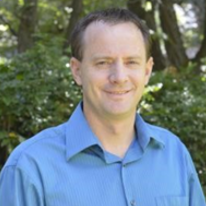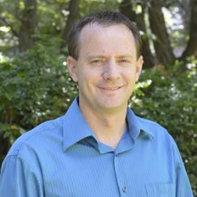- Calls to this hotline are currently being directed to Within Health, Fay or Eating Disorder Solutions
- Representatives are standing by 24/7 to help answer your questions
- All calls are confidential and HIPAA compliant
- There is no obligation or cost to call
- Eating Disorder Hope does not receive any commissions or fees dependent upon which provider you select
- Additional treatment providers are located on our directory or samhsa.gov
Addressing the Needs of Families of Teens, Children & Adult ED Sufferers

Mike Gurr
 Eating Disorder Hope: Welcome to today’s #EDHchat! Today we are going to discuss the needs of the family that are dealing with ED sufferers.
Eating Disorder Hope: Welcome to today’s #EDHchat! Today we are going to discuss the needs of the family that are dealing with ED sufferers.
Eating Disorder Hope: We have the opportunity to tweet with Mike Gurr, Clinical Director for Remuda Ranch at the Meadows.
Eating Disorder Hope: Mike will be tweeting as @RemudaRanch, so please follow along!
Eating Disorder Hope: Our Twitter Chat conversation today is on “Addressing the Needs of Families of Teens, Children & Adult ED Sufferers”.
Eating Disorder Hope: Thank you so much for joining us today Mike and for sharing your expertise.
Mike: Thank you for having me.
Eating Disorder Hope: Let’s get started with our questions!
Eating Disorder Hope: Mike, can you please tell us a little bit about your background? What brought you to the eating disorder field?
Mike: I have been working with families for 17 years and started at a long term residential facility for adolescents.
Mike: Working with young women who struggled with self-worth, body image, comparison and shame I naturally found myself working with this population along with their families.
Mike: I have had the privilege of working with over 2,500 families from around the world so I love looking at that dynamic as well. Treating the whole system.
Eating Disorder Hope: That is wonderful! Thank you for sharing and for all your important contributions to the ED community.
Eating Disorder Hope: Why is it important to address the needs of the family when someone is suffering from an eating disorder?
Mike: The whole system is affected by the ED. Many family members really don’t know what to do or how to help.
Mike: Much of their help or how they give that help actually makes the ED worse.
Mike: I believe everybody has a role in the process of recovery, not just the patient.
Eating Disorder Hope: What are the unique issues and needs that most parents of eating disorder sufferers experience?
Mike: I have seen most parents feel like a failure, I should have seen it, didn’t know it was this bad.
Mike: They don’t know what to do because their greatest fear is their loved one will die. They start parenting from fear, which is never good.
Mike: It is important to become educated and understand the ED and learn what their role will be in the recovery process.
Mike: Many times it is not what they thought. It changes from being the food police to learning how to support their loved one in struggle, hurt, and pain and to stop trying to fix it.
Eating Disorder Hope: Such great points! Thank you for sharing this perspective!
Eating Disorder Hope: What are the top concerns and issues for siblings of the eatingdisorder sufferer?
Mike: It depends on the age of the sibling but I would say some of the top ones I have heard over the years are they are afraid their sibling will not be able to win this fight.
Mike: Also, how can I help because it seems all I do is make it worse.
Mike: They feel like they are walking on egg shells and don’t want to do anything to make it worse, so they pull away and shut down and they want to know how I can connect again without making it worse.
Eating Disorder Hope: Definitely understandable. Thank you for that insight on siblings!
Eating Disorder Hope: How does Remuda Ranch address the family when someone is in treatment?
Mike: That is a key piece of what we do.
Mike: First we have weekly sessions via zoom.
Mike: Second a core piece is our family week.
Mike: It involves the parents and their child along with other sibling depending on age and room in the workshop. It is a 5 day workshop (35 hours) of the family being together.
Mike: They receive an in depth education about ED, receive personality and temperament assessments to better understand each other and just what makes each other tick.
Mike: We go over skills training to build relationships, trust, communication, and how to resolve conflict.
Mike: We give them opportunities to be honest and open with their emotions and the effects the ED has had on each of the family members.
Mike: We finally go over relapse prevention and aftercare and finish it up with a great equine experiential exercise. Also review each person’s role.
Mike: It is very powerful and life changing for all who attend this week!
Eating Disorder Hope: Wow! Thank you for sharing the details of this! Sounds like a wonderful resource for families going thru ED recovery.
Eating Disorder Hope: If a family member of an ED sufferer is wanting to encourage their loved one to seek treatment, how do you recommend they approach this?
Mike: Great question with many variables at play.
Mike: If they are willing just simply approach them with care and compassion about what you are experiencing and the why for the treatment.
Mike: If they are more resistant to treatment you can bring in an interventionist to help with that process.
Mike: Also another thing to consider, are people who have influence with the person you are concerned about. It might be a friend, teacher, coach, clergy, etc.
Mike: They will say the same thing as the parents but many times it is received and heard coming from those people.
Mike: It also could include a therapist/counselor or dietician to help them see they need a higher level of care.
Mike: I would say most important come at them with understanding and love and not that they are a problem you are trying to fix.
Eating Disorder Hope: All great suggestions, Mike! Thank you for your helpful feedback for such a delicate issue.
Eating Disorder Hope: This concludes the questions for our Twitter Chat on “Addressing the Needs of Families of Teens, Children & Adult ED Sufferers”.
Eating Disorder Hope: Thank you again to our special guest, Mike Gurr, Clinical Director for Remuda Ranch at the Meadows.
Mike: You are very welcome. Thank you for having me today.
Eating Disorder Hope: You can also find out more about Remuda Ranch at the Meadows and the programs they offer on their website: www.remudaranch.com.
Eating Disorder Hope: For more helpful eating disorder resources, visit www.eatingdisorderhope.com.
Eating Disorder Hope: No matter where you may be today, be encouraged in your recovery journey and know that you do not walk alone. Take care everyone!

The EatingDisorderHope.com editorial team comprises experienced writers, editors, and medical reviewers specializing in eating disorders, treatment, and mental and behavioral health.

